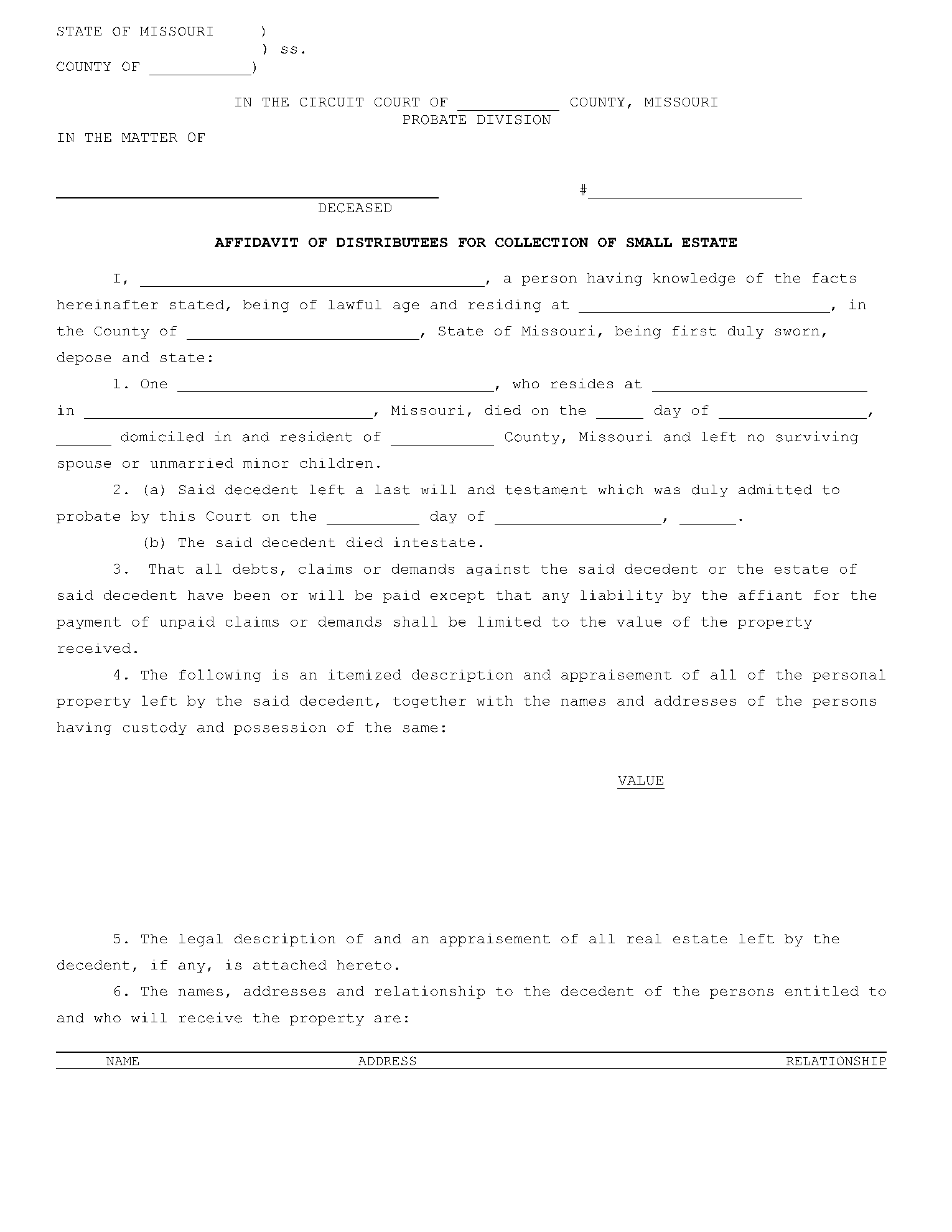After someone dies, you can potentially distribute the property they left behind without probate proceedings with a small estate affidavit in Oklahoma. We explain small affidavits in detail below. If you wish to jump to writing the small estate affidavit directly, you can use the small estate affidavit Oklahoma form above the page.
What is an Oklahoma Small Estate Affidavit?
The Oklahoma small estate affidavit is an official document that authorizes the transfer of a dead person’s small estate to the heir. In the state of Oklahoma, small estate qualifies as any assets that are $50,000 or less in value.
In Oklahoma, small estate affidavits are mainly used to transfer money from the decedent’s bank accounts, credit unions, and savings and loan associations. You present a completed affidavit to the institution and they transfer the money to you.
It’s also possible to use a small estate affidavit to transfer tangible property less than $50,000 in value that’s not money or land – such as debts and stocks. The limit for this type of small affidavit is also $50,000.
What Are the Requirements to File a Small Estate Affidavit in Oklahoma?
Small estate affidavits take the place of probate court proceedings. As such, there are some minimum requirements to be met when filing a small estate affidavit:
- No will must be left by the decedent. If there is a will, you must follow probate proceedings instead of a small estate affidavit.
- The fair market value of the property must be $50,000 or less. Fair market value is a value that a seller will willingly accept and a buyer will willingly pay.
- The assets must be located in the state. Any out-of-state property does not count toward the $50,000 total.
- The decedent must own the property. If they owned a joint bank account or their property was controlled by a trust, then this property is not covered by the affidavit.
- The decedent has not willed the property away, and the intestate succession laws are being followed.
- Liens and encumbrances must be deducted from the final value of the property.
- You must qualify as a successor to draft the affidavit. If there are multiple successors, you must divide the value of the property equally among everyone.
The full requirements are in the Oklahoma probate code: 58 OS § 393 and 6 OS § 906. For vehicles, you need to fill in Form 405. Some of the requirements to file a small estate affidavit are complex. If in doubt, it’s best to consult with an attorney.
How to File a Small Estate Affidavit in Oklahoma?
You don’t need to formally file the small estate affidavit at the county clerk’s office, but you do need to sign it in front of a notary. Here are the steps to follow:
- Use the small estate affidavit form to begin creating the affidavit.
- Include all the necessary details. Some examples are the county in which you’re signing, the relationship with the decedent, their personal details and date of death, the name of the financial institution, and the account number.
- Take it to a notary and sign it. You will need to do so with witnesses present.
You can then present this document to any financial institution holding the decedent’s assets. Note that the procedure for creating a small estate affidavit for other non-financial property is similar.
Conclusion
It is a good idea to use a small estate affidavit in Oklahoma when applicable. Not only does it help you avoid complicated probate proceedings, but it also saves you from paying steep attorney fees and other expenses. You can wrap up the asset distribution in a short period.
Note that if there are any problems with assets, like disputed ownerships or unclear succession, then court intervention may be necessary. Use our free Oklahoma small estate affidavit template to create an accepted formal document quickly. CocoSign offers useful document creation and form filling resources for a range of scenarios.
